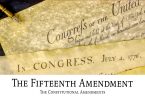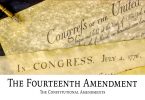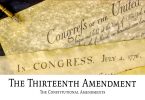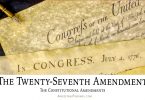The sixteenth amendment to the US Constitution is a contentious one, and has been since it was ratified. To this day, there are people who insist it is not legal, based on things said in the original part of the Constitution. It is no wonder that this amendment is not a popular one, because it is the amendment that established the federal income tax. It is to be expected that people aren’t going to like that, and they still don’t, to this modern day.
What Does it Say?
“The Congress shall have power to lay and collect taxes on incomes, from whatever source derived, without apportionment among the several States, and without regard to any census or enumeration.”
What Does it Mean?
The sixteenth amendment allows Congress to collect an income tax and use it for federal purposes, without sharing it with the states on the basis of each state’s population (which parts of the original Constitution says Congress must do for any type of taxes it collects). Congress passed this amendment in 1909, and was ratified by the required ¾ of states in February of 1913. The adoption of this amendment overruled a US Supreme Court decision in the Pollock vs. Farmers’ Loan & Trust Co. case of 1895, which essentially ruled an income tax unconstitutional. Congress made this type of tax Constitutional by adding this amendment to the Constitution.
Before this amendment was adopted, most of the money that the federal government earned came from tariffs on imports, rather than taxes from the American populace. There was an income tax imposed by the Revenue Act of 1861, to help pay for the Civil War, but this was a self-limiting tax and expired in 1872. Even after this tax went away, there were still people and groups who thought an income tax would be a good thing.
The Populist Party, which was a late 19th and early 20th century political party, desired an income tax at the federal level. The Populist Party, and other groups that supported a federal income tax, believed that tariffs imposed unfair taxes on low income people. They believed that a shift to an income tax would put the greater burden of paying taxes on wealthier people.
After the Pollock case, where the US Supreme Court ruled that certain types of income, if taxed at the federal level, would have to be shared with the states, Congress abandoned the idea of a federal income tax for a while. They believed that the court would strike down any attempt they made to pass such a tax into law. It was in 1909, during the Payne-Aldrich Tariff Act debate, that Congress finally proposed the sixteenth amendment.
Initially, the Republican Party believed such an amendment would not be ratified by the requisite number of states to become part of the Constitution. But, a group of Democrats, progressive Republicans, and other groups who favored an income tax, lobbied the state legislatures in favor of the amendment, and convinced enough of them to vote to adopt it to the Constitution.
The amendment was ratified, and Congress imposed the first federal income tax with the Revenue Act of 1913. In 1916, the US Supreme Court upheld the Constitutionality of the income tax in the case of Brushaber vs. Union Pacific Railroad Co. The federal government has levied a federal income tax ever since that first one in 1913.




